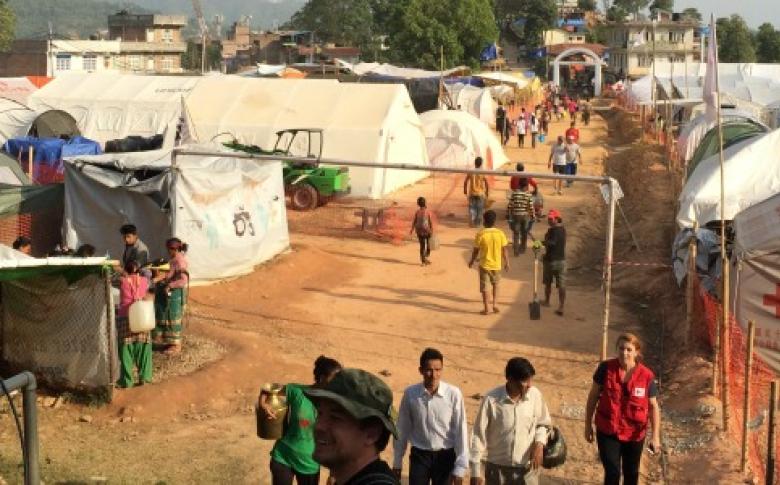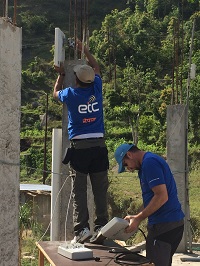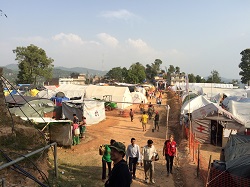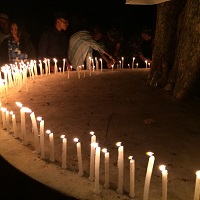On the Road


By breakfast time on the first day of my deployment to Nepal, as part of the second wave of ETC responders, four of us were packing up White Thunder (one of the more comfortable vehicles available) to go out to the field.
Charikot was the first stop and temporary home to Tamas and Martin. Having dumped all our bags in their makeshift office and forced them to reorganize the sleeping arrangements to accommodate us for the night, we went with them as they linked a nearby hotel where humanitarians were staying to the ETC network.
We returned to the same hotel for dinner that evening and walked home along the tiny lanes, spotting fireflies in the bushes. Two aftershocks in the night and the sound of trucks rumbling outside in the early hours meant we were all up and eating breakfast MREs on the floor at the break of dawn. Swapping Magnus for Tamas, White Thunder was soon on the road to Chautara.
Where Charikot is peaceful and slow, Chautara is noisy and action-packed. It is also where the full impact of the earthquake is obvious. The main road is blocked for safety reasons such is the damage to the buildings there: some completely destroyed, some leaning back or into the road and others look as if they have been upended, teetering now on what would have been a wall.

The humanitarian camp smells like a summer wedding marquee back home, all warm air and canvas. That's where the similarity ends though; a body wrapped in colourful cloth being taken for burial was a stark reminder of what people really lost here.
This man or woman was just one of more than 8 thousand now dead. One side of the camp is dedicated mainly to a Red Cross field hospital while on the other side are the tents of the IDPs. The adults focus on trying to rebuild their lives while the children play games, seemingly unaware of their families' situation, in a dedicated daycare centre.

That evening, a one minute silence was held by candlelight under a tree to mark one month since the earthquake and to remember those who lost their lives. It was a brief moment of quiet in the noise of the camp.
After a night spent tucked in sleeping bags, listening to the furious storm in the night which threatened to take the tent and us with it up into a swirl of thunder and lightning, Morgan, an ETC Stand-by Partner and host with the most, made us coffee in the morning is his ‘guest mugs' that he seemed more than happy to use.
In Sanskrit, Chautara means a ‘place to meet', usually a stone platform under the shade of a large tree. Today, throngs of people are meeting in Chautara but not for the social reasons intended. The ETC though, through providing internet connectivity, is trying to make the situation more bearable for all involved.
Suzanne Fenton, World Food Programme (WFP), deployed as ETC Nepal IM Officer